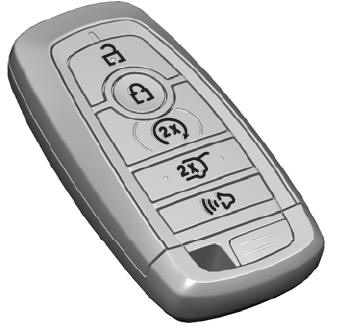Lincoln Aviator: Module Configuration / General Procedures - Module Programming
Check
NOTE: Perform the following pre-checks to make sure module programming completes without errors.
-
Start the programming session in KOEO.
-
Make sure the vehicle battery is fully charged or is
connected to a battery charger. The battery state of charge should be
12.6 - 13.6 volts during vehicle programming.
-
NOTE: A good internet connection is necessary.
Inspect the VCM II or VCMM and cables for damage. Make sure cables remain connected throughout the programming procedure.
-
Turn off all unnecessary accessories, such as radio, A/C, climate controlled seats, headlamps, interior and demand lamps.
-
Disconnect any aftermarket accessories, such as remote start, security alarm and power inverter.
-
For Plug-in hybrid and electric vehicles, disconnect the external charge cord from the charge port.
-
Disable Microsoft Windows sleep mode, screensaver and hibernation modes.
Programming
NOTE: If the diagnostic software does not load or if the vehicle cannot be identified properly, make sure there is a good internet connection and the VCM II or VCMM is properly connected to the DLC.
-
Log into FDRS.
-
NOTE: Vehicle information is automatically retrieved by the diagnostic software and a Network Test is run. Vehicle identification data appears on the screen when this is complete.
Click 'Read VIN from Vehicle' or manually enter the VIN.
-
NOTE: Available modules are shown on the LH side of the screen, and available procedures are listed on the RH side of the screen. Modules that are communicating are highlighted in green.
Select Toolbox tab.
-
NOTE: If a module is integrated within another module, both modules will automatically program during this process. For example, if the ACM is selected, the DACMC (if integrated with the ACM) is also programmed.
From the list on the LH side of the screen, select the module that requires a programming procedure to be completed.
-
From the list on the RH side of the screen, select PMI or Module Configuration.
-
Click RUN. Follow all on-screen instructions carefully.
Recovery
NOTE: Perform the following steps when programming has resulted in a blank module.
-
Disconnect the VCM II or VCMM from the DLC and PC.
-
Launch FDRS and log in.
-
In the Device Manager window that populates, select CANCEL.
-
Select the appropriate VIN from the Vehicle Identification menu or use Manual VIN Entry and select GO.
-
In the Vehicle Communication Device Not Detected window
that populates, select CONTINUE. If a Device Explorer window populates,
select CANCEL.
-
After the session has started, reconnect the VCM II/ VCMM to the DLC and the PC. The VCM II/ VCMM icon should turn green in the bottom right corner of the screen. If it does not, troubleshoot the FDRS to VCM II or VCMM connection.
-
In the Toolbox menu, navigate to the failed module and Download/Run PMI.
Follow the on-screen prompts. When asked if the original module is
installed, select NO and continue through the installation application.
-
Once programming has completed, a screen may list
additional steps required to complete the programming process. Make sure
all applicable steps are followed in order.
 Description and Operation - Module Configuration - System Operation and Component Description
Description and Operation - Module Configuration - System Operation and Component Description
System Operation
Programmable Module Installation (PMI)
PMI is a diagnostic scan tool process which configures settings in a new module. Data used for the PMI
process is automatically downloaded from the original module and stored
when a diagnostic scan tool session is started...
Other information:
Lincoln Aviator 2020-2026 Owners Manual: Reverse Braking Assist – Troubleshooting
Reverse Braking Assist – Information Messages Reverse Braking Assist – Frequently Asked Questions Note: If the frequently asked questions and answers that are shown in the following chart do not assist you in returning the system to available, contact an authorized dealer to have the system checked for proper operation...
Lincoln Aviator 2020-2026 Service Manual: Disassembly and Assembly of Subassemblies - Piston
DISASSEMBLY NOTICE: The RH and LH pistons are similar in appearance but differ in design specifications. The pistons must be installed in the correct cylinder bank or serious damage to the engine will occur. Remove and discard the piston rings...
Categories
- Manuals Home
- Lincoln Aviator Owners Manual
- Lincoln Aviator Service Manual
- Child Safety Locks
- Disabling Auto-Start-Stop
- Configuring The Head Up Display
- New on site
- Most important about car
Remote Control
Passive Key

The passive key operates the power locks and the remote start system. The passive key must be in your vehicle to use the push button start.
Note: You may not be able to shift out of park (P) unless the passive key is inside your vehicle.

